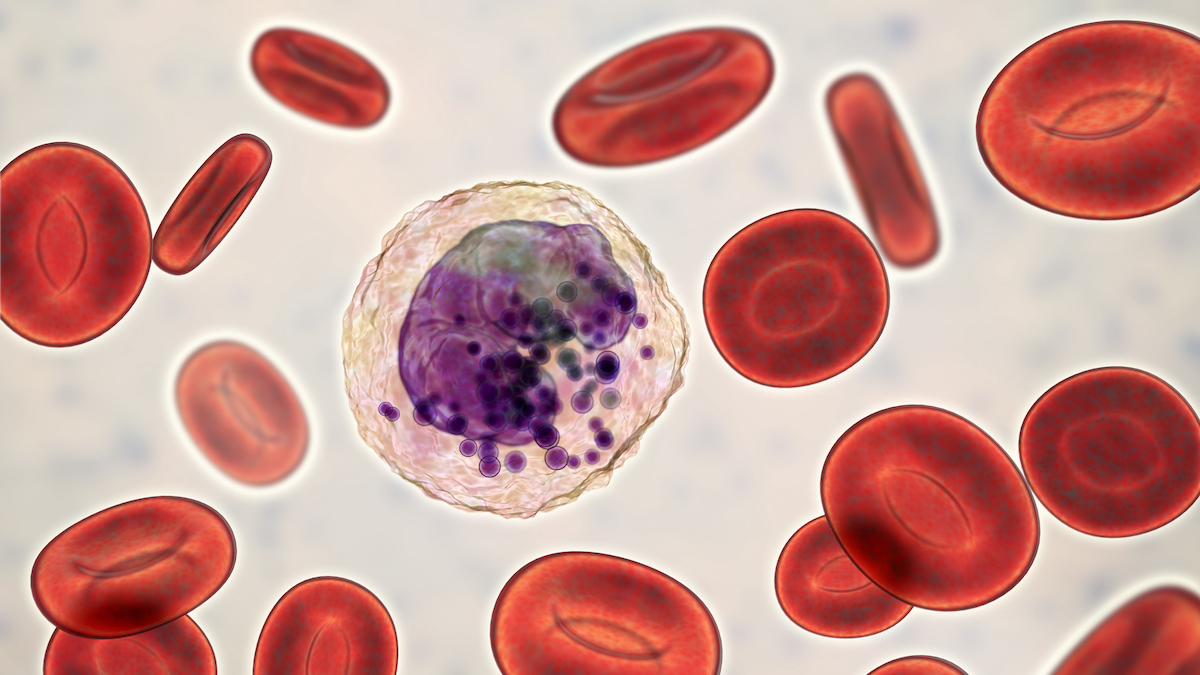‘Very encouraging’: Two cancer patients see partial remission and long-lasting benefits after treatment with Prescient’s PTX-100

Prescient Therapeutics (ASX:PTX) says its cancer-fighting drug candidate has exhibited an excellent safety in an early clinical trial – and seemed to benefit two patients with aggressive, hard-to-treat lymphoma. Image: Getty
Prescient Therapeutics (ASX:PTX) says its cancer-fighting drug candidate has exhibited an excellent safety in an early clinical trial – and seemed to benefit two patients with aggressive, hard-to-treat lymphoma.
Prescient says it is encouraged by a Phase 1b trial evaluating PTX-100 in ten patients: five with solid tumours — pancreatic and colorectal cancer – and five patients with blood cancer, namely multiple myeloma and T cell lymphomas.
The drug was well-tolerated, even at the highest doses, Prescient says. An intravenous infusion, PTX-100 works by blocking an important protein known as GGT-1 that is involved in cancer-causing pathways in cells.
The safety profile of the drug means it might have utility in fragile patients unable to tolerate more toxic therapies, or as a combination agent with other treatments, says Prescient chief executive and managing director Steven Yatomi-Clarke.
And while the primary goal of the study was to evaluate safety, clinical benefit was observed in two patients with aggressive T cell lymphoma.
One patient had tried five different therapies to control their peripheral T cell lymphoma, but none had worked for more than a few months at a time.
Treated with PTX-100, the patient experienced a partial remission in their cancer that has lasted 17 months so far. The patient has undergone 24 cycles of therapy and is still receiving PTX-100.
The other patient also had partial remission, seeing reduced cancerous lesions and relief from their cutaneous T cell lymphoma during 12 months of therapy. This patient had tried three prior treatments that had failed to control their cancer.
Both patients could have expected disease progression within four months using currently available treatments, highlighting the benefits of PTX-100.
“It was surprising to not only see clinical responses in these patients, but for these benefits to endure for a year or longer, together with symptomatic relief,” says principal study investor, Professor H. Miles Prince, who called the early results “very encouraging”.
A possible quick route to market
Given the success of the Phase 1b study, Prescient plans to progress development of PTX-100 with another study into refractory T cell lymphoma, with a particular focus on peripheral T-cell lymphoma.
There’s a considerable unmet need in treating that aggressive, rare form of non-Hodgkin’s lymphoma with poor survival rates.
The study will evaluate PTX-100 as a monotherapy, meaning the infusion won’t be administered in combination with other drugs.
The company plans to enrol eight to 12 patients in the expansion of the study, which will again be led by Professor Prince at Epworth Hospital in Melbourne.
If that study successfully demonstrates a clinical benefit for PTX-100, the drug could advance directly into another study that could be suitable for registration.
Compared to the usual large Phase 3 studies, a comparatively smaller trial might be all that’s needed to register the drug, Prescient says.
Yatomi-Clarke says the company is pursuing the quickest route to market for PTX-100 by pursuing areas of unmet clinical need.
This article was developed in collaboration with Prescient Therapeutics, a Stockhead advertiser at the time of publishing.
This article does not constitute financial product advice. You should consider obtaining independent advice before making any financial decisions.
Related Topics

UNLOCK INSIGHTS
Discover the untold stories of emerging ASX stocks.
Daily news and expert analysis, it's free to subscribe.
By proceeding, you confirm you understand that we handle personal information in accordance with our Privacy Policy.








